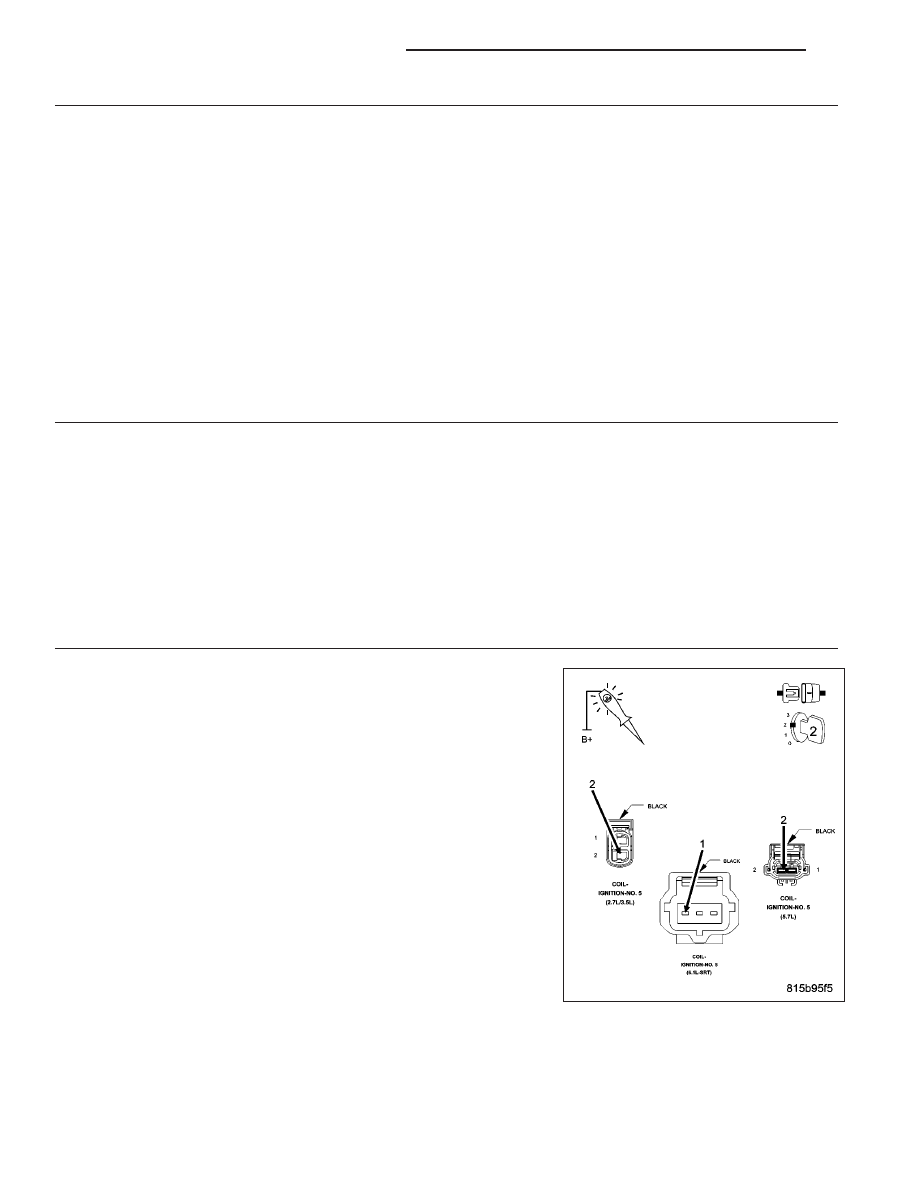Content .. 1072 1073 1074 1075 ..
Chrysler 300/300 Touring/300C, Dodge Magnum. Manual - part 1074

13.
FUEL PUMP INLET STRAINER
Turn the ignition off.
WARNING: The fuel system is under a constant pressure (even with the engine off). Before testing or ser-
vicing any fuel system hose, fitting or line, the fuel system pressure must be released. Failure to follow
these instructions can result in personal injury or death.
Remove the Fuel Pump Module and inspect the Fuel Inlet Strainer.
Is the Fuel Inlet Strainer plugged?
Yes
>> Replace the Fuel Pump Inlet Strainer.
Perform (NGC) POWERTRAIN VERIFICATION TEST VER - 5. (Refer to 8 - ELECTRICAL/ELEC-
TRONIC CONTROL MODULES/POWERTRAIN CONTROL MODULE -DIAGNOSIS AND TESTING)
No
>> Before continuing, check the Fuel Pump Module harness connector terminals for corrosion, damage, or
terminal push out. Make sure the ground circuit is operating properly. Repair as necessary. Replace the
Fuel Pump Module.
Perform the POWERTRAIN VERIFICATION TEST. (Refer to 9 - ENGINE - STANDARD PROCEDURE)
14.
IGNITION WIRE
NOTE: If the vehicle being tested does not have an ignition wire answer YES to this test and continue.
Turn the ignition off.
Remove the ignition wire.
Measure the resistance of the ignition wire.
Is the resistance below 10K ohms?
Yes
>> Go To 15
No
>> Replace the Ignition Wire.
Perform the POWERTRAIN VERIFICATION TEST. (Refer to 9 - ENGINE - STANDARD PROCEDURE)
15.
IGNITION COIL
Disconnect the No.5 Ignition Coil harness connector.
Remove the Fuel Pump Relay.
Using a 12-volt test light connected to 12-volts, probe the (K16) Coil
Control No.5 circuit.
Crank the engine for 5 second while observing the test light.
Does the test light brightly blink/flicker?
Yes
>> Replace the Ignition Coil.
Perform the POWERTRAIN VERIFICATION TEST. (Refer to
9 - ENGINE - STANDARD PROCEDURE)
No
>> Go To 16
9 - 320
ENGINE ELECTRICAL DIAGNOSTICS
LX